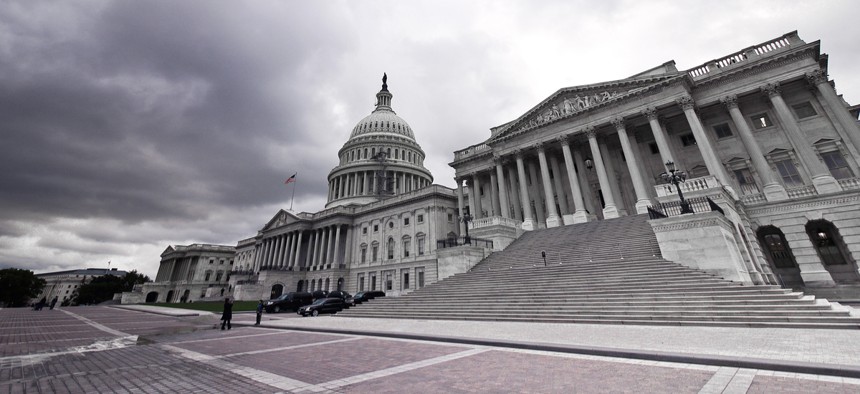Congressional Budget Deal Poised to Include $20 Billion Boost for Infrastructure Spending

Shutterstock

Connecting state and local government leaders
Senate Minority Leader Chuck Schumer said the funding would "augment" existing public works programs.
WASHINGTON — The two-year budget deal congressional leaders struck Wednesday would beef-up infrastructure funding levels by $20 billion, according to Senate Minority Leader Chuck Schumer.
That sum would be spread across the two years, Senate Democrats said, and is part of a broader bipartisan pact to roll back budget caps established in 2011, allowing for about $300 billion in added federal spending over fiscal years 2018 and 2019.
Schumer, of New York, said in floor remarks that the $20 billion boost would "augment" existing infrastructure programs covering areas like transportation, water and wastewater, rural broadband and energy.
For state and local governments, there were other notable domestic funding level increases Schumer highlighted.
These included an increase of $6 billion for programs related to mental health and the opioid addiction epidemic affecting parts of the U.S., and an additional $5.8 billion for Child Care and Development Block Grants, which go toward state programs meant to help low-income families get access to childcare.
President Trump has voiced support for new infrastructure investment and the White House has said he will release a document Monday outlining the "principles" of his plan.
Senate Majority Leader Mitch McConnell also acknowledged the deal would allow for an increase in infrastructure spending, but did not specify the amount. "The agreement will clear the way for a new investment in our nation's infrastructure, a bipartisan priority shared by the president and lawmakers of both parties," he said.
Assuming the budget agreement is enacted, McConnell noted that appropriators would then have to negotiate and deliver spending legislation to fully fund the federal government for fiscal 2018, which began on Oct. 1. Since that time, the government has been operating under a series of stopgap spending measures.
The latest temporary measure is set to lapse Thursday. The arrangement announced Wednesday would extend that deadline by six weeks, providing lawmakers time to settle on the longer-term appropriations legislation to set spending levels for specific programs.
A vote on the budget deal in the Senate is expected Thursday, where it will likely have solid support.
But its success appears less assured in the House. Conservatives in the chamber chafed at the prospect of added spending and Minority Leader Nancy Pelosi, of California, before committing her support, was pressing for a guarantee from House Speaker Paul Ryan that he would bring immigration legislation to the floor.
Bill Lucia is a Senior Reporter for Government Executive's Route Fifty and is based in Washington, D.C.

NEXT STORY: Trump Set to Release 'Principles' for His Infrastructure Plan on Monday





